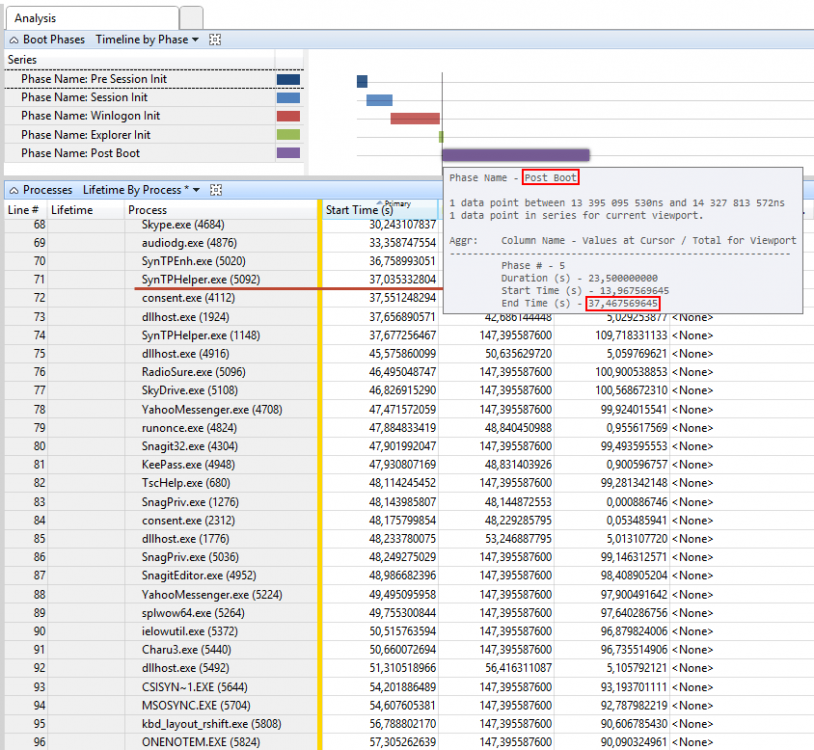@Mystere
I certainly don't appreciate your rhetoric involving the terms "retarded" and "stupid". So the explanation below is not for you, but for others who want better understanding of how Windows boot is measured and how startup programs affect boot time as measured by the OS and ADK.
My comment was because you were supporting the stupid claim that because startup programs are serialized and delay started, this was some way of Microsoft "cheating" with boot times. Startup programs are irrelevant to how long it takes the OS to boot.
Both statements are incorrect, and I'll start from the second sentence.
Startup programs do affect boot time, because after explorer is launched they start competing for the hardware resources with system processes that had started during earlier boot phases.
Not every startup program affects boot time, because the cut off in measurements occurs at some point after which some programs may continue to launch. I quote from
Windows On/Off Transition Performance Analysis
=============
Boot Transition: The PostBoot Phase
What Happens in This Phase
The PostBoot phase includes all background activity that occurs after the desktop is ready. The user can interact with the desktop, but the system might still be starting services, tray icons, and application code in the background. This phase is considered complete when Xperf data indicates that background activity has dropped to a reasonably idle level.
Specifically, Xperf samples the system every 100 ms during the PostBoot phase. If the system is 80-percent or more idle (excluding low-priority CPU and disk activity) at the time of the sample, Xperf considers the system to be “idle” for that 100‑ms interval. The phase persists until the system accumulates 10 seconds of idle time.
Note: When you review traces and report timing results, you should subtract the 10‑second idle time that accumulated during PostBoot to determine total boot time. Busy time in PostBoot counts toward the total, but the mandatory 10 seconds of idle time does not. In this paper, the idle time is subtracted from the timing data.
=============
Per the document, it applies to Windows 7, but I don't see a reason why it would change in Windows 8. What changes is how Windows 8 deals with startup programs, and I mean the delayed startup I've described above. It is fairly obvious that serializing startup reduces the pressure on hardware resources. Therefore, WDI (takes care of automated traces at every boot) or xperf/WPR conclude that the system is idle before
most startup programs are launched.
Here's another screenshot of my boot trace (not the same one I posted above, but a similar one).

It's pretty clear that boot is considered complete after 37 seconds, while most of startup programs haven't launched yet.
I don't view this as cheating, because the goal is to make the OS available to user faster, and certainly before all startup programs (enormous amount of junk for many users) will load. Actually,
this is not the first time Microsoft goes at war with startup programs. This method still works with Windows 7 and technically might work with Windows 8 (not tested), especially when delayed startup is reduced with StartupDelayInMSec registry parameter. The benefits are a different story, though.



